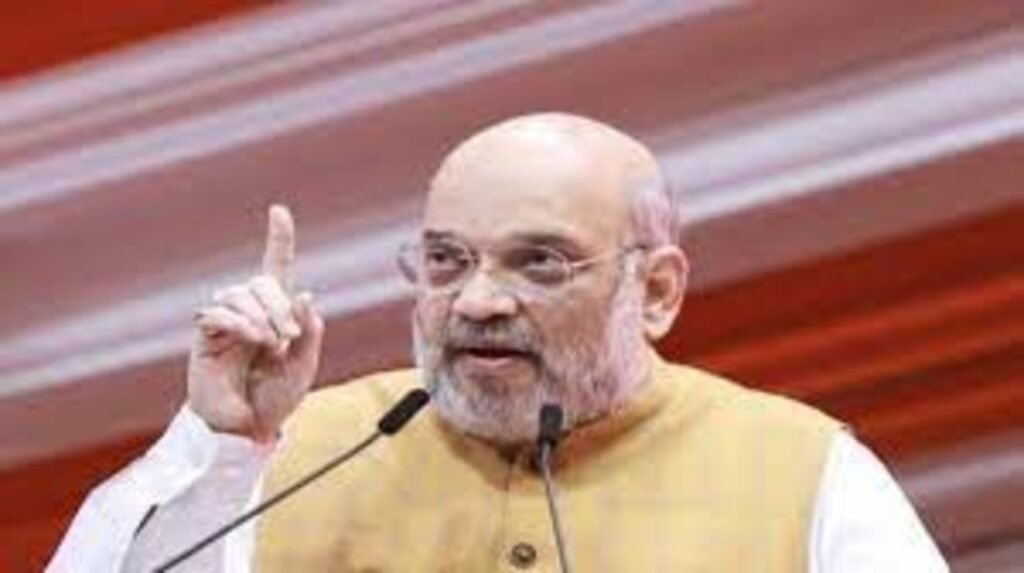Introduction
In a recent political rally in Dungarpur, Rajasthan, Union Home Minister Amit Shah criticized DMK leader MK Stalin’s son, Udhayanidhi Stalin, for his remarks on Sanatana Dharma. The comments by the DMK leader’s son have ignited a heated debate over religion, politics, and heritage in India.

Udhayanidhi Stalin’s comments, made during a writers’ conference in Chennai, targeted Sanatana Dharma, equating it with ideas that oppose social justice and even compared it to diseases like dengue and malaria. As these remarks spread across social media, they triggered strong reactions from various political quarters, particularly from members of the Bharatiya Janata Party (BJP).
Amit Shah, while addressing the crowd at the launch of BJP’s Parivartan Yatra in Rajasthan, accused the Opposition bloc INDIA of “hating Hinduism” and described the comments as “an attack on our heritage.” He further alleged that Udhayanidhi Stalin’s remarks were driven by “vote bank politics” and “appeasement” tactics.
Divided opinions among Political Leaders
This controversy has divided opinions among political leaders. While Udhayanidhi Stalin defended his comments, asserting that Sanatana Dharma “divides people in the name of caste and religion,” Congress leader Karti Chidambaram supported his viewpoint, stating that Sanatana Dharma represents a “Caste Hierarchical Society” and is a curse on India.
Amit Shah also referenced past remarks made by Congress leader Rahul Gandhi in 2010, where he had compared Hindu organizations to terror outfit Lashkar-e-Taiba. Shah seized this opportunity to criticize the Congress party further.
The political rhetoric surrounding this issue has intensified as India approaches state elections. The BJP is striving to unseat the ruling Congress party in these upcoming polls. Shah asserted that Sanatana Dharma continues to hold a special place in the hearts of the Indian people and stated that it will endure regardless of the election outcome.
Moreover, Amit Shah accused the Congress of obstructing the construction of the Ram Temple in Ayodhya and promised that the temple would be ready by January, regardless of any opposition from the INDIA alliance.
The Parivartan Yatra launched by the BJP aims to cover 2,500 kilometers over 19 days, reaching 52 Assembly constituencies and holding numerous meetings. Shah confidently predicted that the fate of the Ashok Gehlot government in Rajasthan would be sealed by the end of this journey, citing allegations of corruption and inadequate protection of women as key issues.
Conclusion
This political row over remarks on Sanatana Dharma underscores the complex interplay of religion and politics in India, where heritage and tradition are deeply intertwined with the electoral landscape. As the country watches, the debate continues to unfold, with implications that could extend beyond the upcoming state elections.






